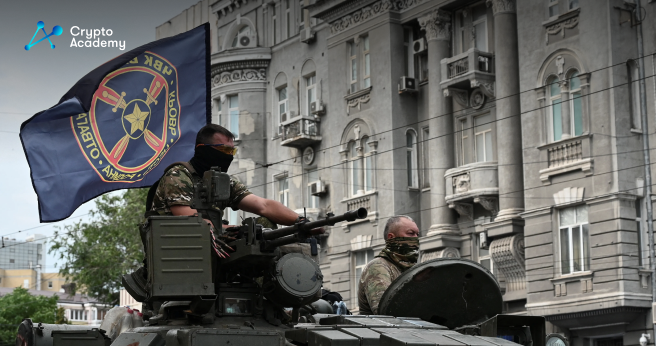Fifth Bitcoin Address Could Belong To Wagner Group Leader

The untimely demise of Yevgeny Prigozhin, owner of the controversial Wagner Private Military Company (PMC), has unleashed a flurry of speculations, particularly concerning his rumored association with an enormous Bitcoin (BTC) wallet. We delve into how these rumors could reshape our understanding of Wagner and its possible connections to the cryptocurrency ecosystem.
A Mysterious Death Sparks Rumors
On August 23, news outlets were abuzz with reports of a devastating plane crash in Russia’s Tver region. Among the ten passengers onboard, all of whom perished, were Yevgeny Prigozhin and Wagner’s commander, Dmitry Utkin. The BBC and other media houses have reported that the victims have been tentatively identified, and an official investigation is underway.
Concurrently, rumors have erupted, suggesting that Prigozhin had a staggering amount of cryptocurrency, specifically Bitcoin, under his control. According to these claims, Prigozhin’s Bitcoin wallet held approximately 100,000 coins, with a current valuation close to $2.6 billion. Notably, around 70% of these coins are believed to be stored in cold wallets, with the remaining assets spread between crypto exchanges like Binance and BTC-W.
A Crypto Power Player?
While concrete evidence is still lacking, the sheer size of the wallet could make Prigozhin one of the top five largest Bitcoin holders globally. To give context, the third-largest wallet holds 118,300 coins, while the fifth-largest contains 94,643 BTC. If the rumors are to be believed, this would mean that Wagner’s Prigozhin controlled one of the most significant amounts of Bitcoin in circulation.
Circumstantial Motives for Wagner’s Interest in Bitcoin
The allegations surrounding Prigozhin’s Bitcoin stash don’t seem entirely outlandish when considering the geopolitics and financial challenges Wagner and Prigozhin have faced. Russia’s strained relationship with Ukraine and the subsequent international sanctions have caused significant payment providers like Visa and Mastercard to withdraw their services, crippling cross-border transactions. Under these conditions, cryptocurrencies like Bitcoin present a more resilient alternative for maintaining financial liquidity.
Why Cryptocurrency Could Serve Wagner’s Goals
In July 2023, the OSCE Parliamentary Assembly labelled Wagner as a terrorist entity, further complicating the group’s financial operations. However, Bitcoin’s pseudo-anonymous nature could offer Wagner an untraceable means to facilitate its dealings, especially with its known operations across continents like Africa. Cryptocurrencies are commonly used in shadow markets and have the technological setup to enable secure, anonymous transactions, features that could be highly appealing to an entity like Wagner.
The recent increase in stablecoin purchases among Russians following an uprising linked to Wagner in June 2023 also provides circumstantial evidence that the group might have shifted its financial operations to the crypto space.
A Story Yet to Unfold
Although the rumors about Prigozhin’s large Bitcoin wallet remain unconfirmed, the speculations point towards a fascinating interplay between paramilitary groups like Wagner and the growing crypto economy. While the investigation into Prigozhin’s sudden death is ongoing, so too are inquiries into Wagner’s alleged crypto connections. What’s clear is that the world may just be scratching the surface of understanding the influence and reach of the Wagner group in the mysterious realm of cryptocurrencies.
So, whether you’re an avid crypto enthusiast or keenly interested in the workings of international PMCs like Wagner, this unfolding story is one to watch.

Comments are closed.